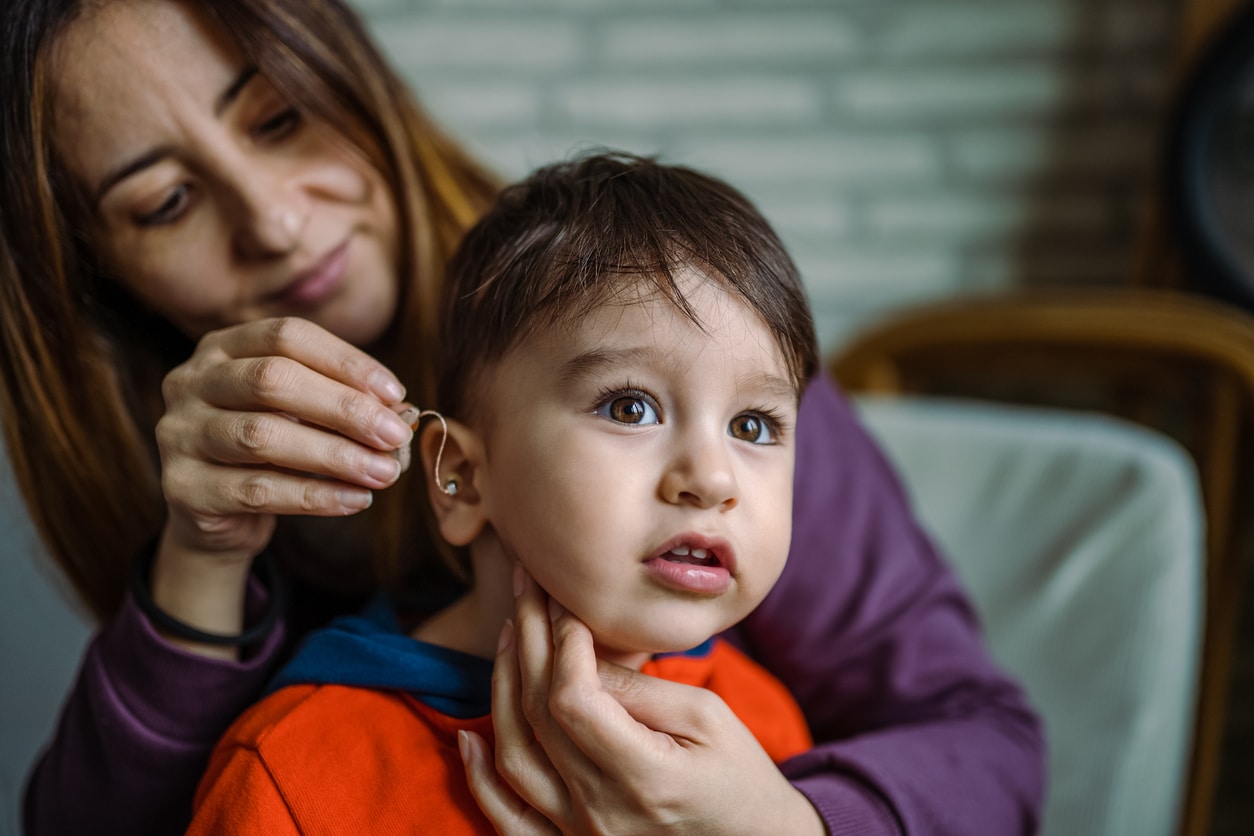Fluctuating hearing loss is a form of hearing loss that seems to fluctuate over time. It can be related to either conductive hearing loss or sensorineural hearing loss and has the potential to worsen as time passes.
This kind of hearing loss can significantly impact a child’s speech and language development. Therefore, it’s important to understand how to identify fluctuating hearing loss to best support a child who may be experiencing it.
Underlying Causes of Fluctuating Hearing Loss

Fluctuating hearing loss can be triggered by various factors.
The most prevalent causes include:
- Ear infections
- Exposure to loud noises
- Accumulation of ear wax
- Autoimmune inner ear disease (AIED)
- Ménière’s Disease
Persistent ear infections can affect a child’s hearing over a prolonged period, and consecutive hearing tests aren’t always indicative of the condition because they can make a child’s hearing seem better or worse.
Implications of Fluctuating Hearing Loss
Fluctuating hearing loss can disrupt a child’s development by affecting speech and language acquisition and impacting their ability to socially connect. In an educational environment, background noise can interfere with understanding conversations and sounds can appear muffled. This can hinder a child’s learning ability and lessen their confidence in social interactions.
Potential impacts of fluctuating hearing loss include:
- A child might be misconstrued as being inattentive or daydreaming when, in fact, they are unable to hear, resulting in negative effects on their self-worth.
- A child may perceive themselves as less competent due to missing parts of conversations and potentially lagging behind others.
- A child might disregard speech signals, causing a delay in speech and language development.
- A child may struggle to recognize changes in their own hearing ability.
- The child may be viewed as easily distracted, socially immature or uninterested in class participation, often leading to a delay in receiving treatment.
Upon identifying fluctuating hearing loss, it’s vital to keep a close eye on the symptoms and manage them effectively. Symptom management will vary based on what’s causing the fluctuating hearing loss. So, if you’ve noticed your child having difficulty hearing during social gatherings at Lubber Run Park, schedule an appointment with a hearing specialist. The specialist can help pinpoint the underlying causes and devise an appropriate treatment plan.
To arrange a hearing assessment for yourself or a family member, contact ENT Specialists Of Northern Virginia.